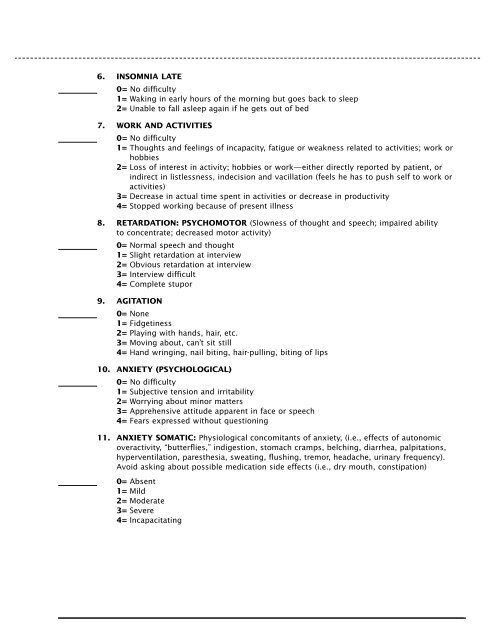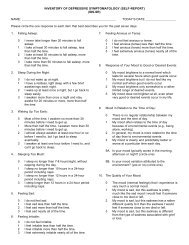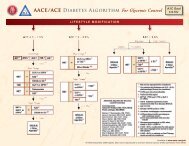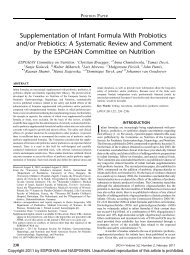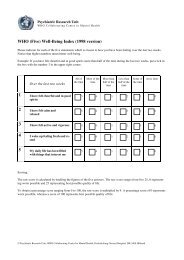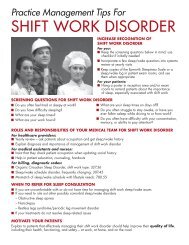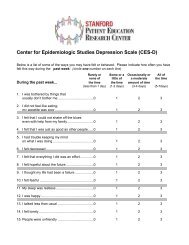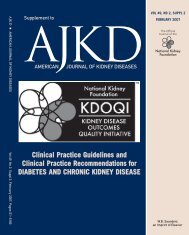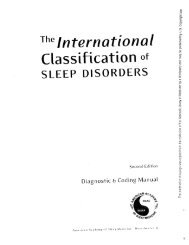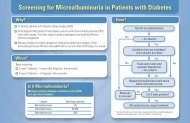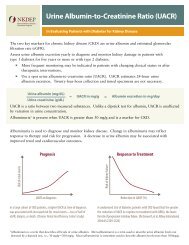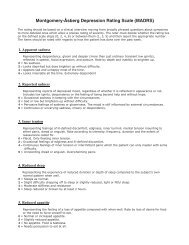THE HAMILTON RATING SCALE FOR DEPRESSION
THE HAMILTON RATING SCALE FOR DEPRESSION
THE HAMILTON RATING SCALE FOR DEPRESSION
Create successful ePaper yourself
Turn your PDF publications into a flip-book with our unique Google optimized e-Paper software.
6. INSOMNIA LATE0= No difficulty1= Waking in early hours of the morning but goes back to sleep2= Unable to fall asleep again if he gets out of bed7. WORK AND ACTIVITIES0= No difficulty1= Thoughts and feelings of incapacity, fatigue or weakness related to activities; work orhobbies2= Loss of interest in activity; hobbies or work—either directly reported by patient, orindirect in listlessness, indecision and vacillation (feels he has to push self to work oractivities)3= Decrease in actual time spent in activities or decrease in productivity4= Stopped working because of present illness8. RETARDATION: PSYCHOMOTOR (Slowness of thought and speech; impaired abilityto concentrate; decreased motor activity)0= Normal speech and thought1= Slight retardation at interview2= Obvious retardation at interview3= Interview difficult4= Complete stupor9. AGITATION0= None1= Fidgetiness2= Playing with hands, hair, etc.3= Moving about, can’t sit still4= Hand wringing, nail biting, hair-pulling, biting of lips10. ANXIETY (PSYCHOLOGICAL)0= No difficulty1= Subjective tension and irritability2= Worrying about minor matters3= Apprehensive attitude apparent in face or speech4= Fears expressed without questioning11. ANXIETY SOMATIC: Physiological concomitants of anxiety, (i.e., effects of autonomicoveractivity, “butterflies,” indigestion, stomach cramps, belching, diarrhea, palpitations,hyperventilation, paresthesia, sweating, flushing, tremor, headache, urinary frequency).Avoid asking about possible medication side effects (i.e., dry mouth, constipation)0= Absent1= Mild2= Moderate3= Severe4= Incapacitating


